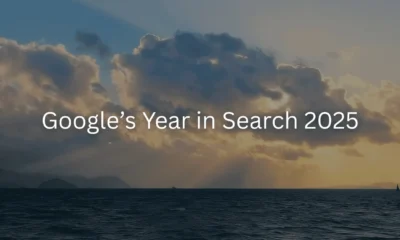How Google Identifies Individual Passages of a Web Page


Google’s public Search Liaison, Danny Sullivan, shares more detail about an upcoming change that will improve 7% of global queries.
Soon, Google will be able to identify individual passages of a web page, which helps with understanding how relevant a page is to a given query.
This update was announced last week and Search Engine Journal’s Roger Montti has a full write up here:
The forthcoming change has drawn its own series of queries from the SEO community, and Sullivan aims to clear things up in a Twitter thread.
Last week, we shared about how we will soon identify individual passages of a web page to better understand how relevant a page is to a search. This will be a global change improving 7% of queries:https://t.co/iQoXktmSkt
In this thread, more about how it works…. pic.twitter.com/2oqdoCkt6r
— Google SearchLiaison (@searchliaison) October 20, 2020
How Passage Identification Works
Google traditionally evaluates a web page as a whole to determine how relevant it is to a query.
This gets challenging when it comes to very long web pages, or pages that touch on multiple topics.
A web page with an abundance of content may inadvertently dilute the one part that is especially relevant to a user’s query.
Google’s new technology will allow it to better identify and understand those key passages.
This has the potential to allow pages to get surfaced in search results which previously may not have been seen as relevant to specific queries.
Sullivan says there’s nothing special that SEOs or site owners need to do to prepare for this change.
“It just means in some cases, we may now do a better job of surfacing content, no work required on the part of creators.”
Sullivan emphasizes this update does not mean Google will start indexing individual passages independently of the web pages they belong to.
When this change rolls out, Google will still be indexing single pages and considering entire pages for ranking.
Passages from web pages will become an additional consideration which Google will take into account when ranking pages.
When does this change roll out?
It’s not yet known when Google will roll out this update to search results.
When asked for an estimated timeframe, Sullivan says Google will provide an update when the change goes live.
We’ll update the thread when it goes live.
— Danny Sullivan (@dannysullivan) October 20, 2020



![How AEO Will Impact Your Business's Google Visibility in 2026 Why Your Small Business’s Google Visibility in 2026 Depends on AEO [Webinar]](https://articles.entireweb.com/wp-content/uploads/2026/01/How-AEO-Will-Impact-Your-Businesss-Google-Visibility-in-2026-400x240.png)
![How AEO Will Impact Your Business's Google Visibility in 2026 Why Your Small Business’s Google Visibility in 2026 Depends on AEO [Webinar]](https://articles.entireweb.com/wp-content/uploads/2026/01/How-AEO-Will-Impact-Your-Businesss-Google-Visibility-in-2026-80x80.png)













